Music industry faces a synthetic future
Publishers cry foul over copyright violations as AI-made tracks flood streaming platforms
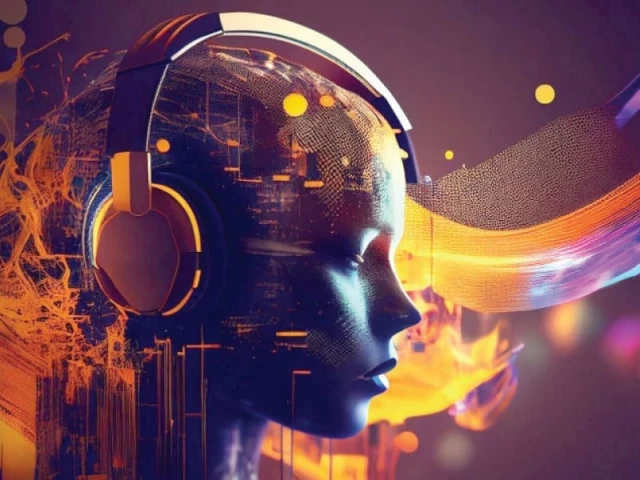
The music world is facing one of its biggest disruptions since the arrival of the internet, as artificial intelligence (AI) moves from curiosity to chart contender, sparking both creative experimentation and deep unease among artists, publishers and record labels. The International Confederation of Music Publishers (ICMP), which represents rights holders worldwide, has accused leading AI firms of large-scale copyright infringement. After a two-year investigation, the group claims that companies such as OpenAI, Suno, Udio and Mistral have been training their models on copyrighted songs, lyrics and even distinctive vocal styles without seeking permission.
The allegation is stark: web-crawlers are harvesting material from platforms like YouTube and licensed streaming services, repurposing the content to generate outputs that closely mimic the originals. Publishers say the practice amounts to wholesale exploitation of creative labour for commercial gain. "No licences, no royalties, and yet profits made off the backs of artists," one rights executive told AFP.
The battle is already spilling into courtrooms. In June 2024, the Recording Industry Association of America filed a landmark lawsuit against Suno and Udio. Three of the world's biggest record companies - Universal, Sony and Warner - followed with their own cases, while German royalty society GEMA has accused Suno of generating songs suspiciously close to "Mambo No 5" and "Forever Young."
At the same time, talks are under way to craft licensing frameworks that might allow AI firms to train on copyrighted work legally. One startup, Eleven Music, has already signed a deal with Kobalt Music, proving accommodation is possible. The precedent echoes earlier disputes in publishing: Anthropic, the maker of AI chatbot Claude, settled for at least $1.5 billion after being accused of scraping book content.
Industry analysts warn that without similar agreements in music, creators could lose as much as 20% of their income over the next four years. Regulators in Europe point to the bloc's new Artificial Intelligence Act as a potential template for accountability, though its global reach is uncertain.
Even as lawsuits pile up, AI music is booming. Oliver McCann, a 37-year-old British designer turned self-styled musician, demonstrates how far things have come. Recording under the stage name "imoliver," he cheerfully admits he has "no musical talent at all." Yet with AI tools, he has produced tracks spanning indie-pop, electro-soul and country-rap. One single has racked up three million streams, landing him a contract with independent label Hallwood Media - hailed as the first signing of an AI music creator by a record company.
McCann is not alone. Across the Atlantic, Scott Smith in Portland, Oregon, and Lukas Rams in Philadelphia have built AI bands, Pulse Empire and Sleeping With Wolves. Both men lack formal training but use AI platforms to generate endless versions of songs until they "match the vision." Rams has even designed album art and physical CDs for his AI-generated work.
"It's a total boom. It's a tsunami," said Josh Antonuccio, director of Ohio University's School of Media Arts and Studies. "Young people are growing up with AI, and the amount of music it produces will only increase exponentially."
For advocates, AI song generators democratise music in the same way smartphones democratised photography. Anyone, anywhere, can now create a track that sounds professional. For sceptics, however, the technology risks flooding the market with what critics derisively call "AI slop" - formulaic, low-quality output that devalues human creativity.
Deezer estimates that 18% of songs uploaded daily to its platform are AI-generated, though they account for only a tiny share of streams. Spotify has not released comparable data, while Udio and Suno declined to comment on user numbers. Still, the scale of experimentation suggests AI music is more than a passing fad.
Artists remain sharply divided. More than 1,000 musicians, including Kate Bush and Damon Albarn, released a silent album to protest proposed UK law changes they fear will weaken creative control. Others, such as will.i.am, Timbaland and Imogen Heap, have embraced AI as a tool for collaboration and innovation.
Smith, whose band Pulse Empire channels the synth sounds of Depeche Mode, argues that AI is simply another tool in a long line of disruptive technologies. "People complained about drum machines and AutoTune too," he said. "Music producers have always had tools listeners don't know about."
For McCann, crafting a song often means generating 100 different versions, tweaking prompts until one resonates. He prefers to write his own lyrics, since AI tends to produce clichés. Rams agrees, describing AI-written words as "extra corny," often recycling motifs like "neon" and "shadows."
Despite the limitations, they insist AI music is not effortless. While a lyric may take minutes, the iteration and refinement process can consume hours. Both men see themselves not as shortcut-takers but as new-generation producers, harnessing algorithms instead of instruments.
The industry finds itself in a liminal moment, not unlike the upheaval of the Napster era two decades ago. Back then, lawsuits over illegal file-sharing paved the way for the rise of streaming platforms that now dominate global music consumption. Today, the question is whether AI will be integrated into the mainstream on terms acceptable to both rights holders and innovators.
"The pipeline keeps shrinking," Antonuccio observed. "From major studios to laptops to bedrooms - and now to text prompts. What once cost a fortune can be done with a line of words." For publishers, that shift threatens an economic model. For creators without training, it is liberation.
A new soundscape
The stakes are enormous. The global recorded music market is worth $29.6 billion, with streaming accounting for more than two-thirds. If AI undermines that revenue, the impact will ripple far beyond pop stars to songwriters, session musicians and the vast ecosystem of people who keep the industry alive.
And yet, the genie is out of the bottle. "I think we're entering a world where anyone, anywhere could make the next big hit," McCann said. "As AI becomes more widely accepted as a musical art form, I think it opens up the possibility for AI music to feature in the charts."

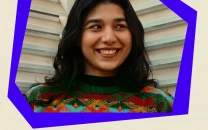

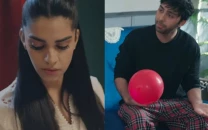

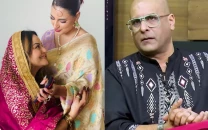
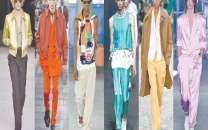













COMMENTS
Comments are moderated and generally will be posted if they are on-topic and not abusive.
For more information, please see our Comments FAQ